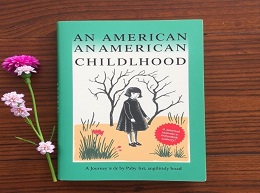Out of Africa

Exploring "Out of Africa": An In-Depth Review of Karen Blixen's Memoir
Karen Blixen’s Out of Africa, published under her pen name Isak Dinesen in 1937, is a celebrated memoir that chronicles her experiences living on a coffee plantation in Kenya from 1914 to 1931. The book is a poignant blend of personal anecdotes, lyrical descriptions of the African landscape, and reflections on the complex interactions between colonizers and the indigenous people. Blixen's memoir stands as a timeless piece of literature, offering readers an evocative and deeply personal glimpse into a unique chapter of colonial Africa.
A Life Unforeseen: Arrival and Early Challenges
Blixen begins her memoir by describing her arrival in Kenya, where she and her husband, Baron Bror von Blixen-Finecke, set up a coffee plantation. Her initial encounters with the land and its people are filled with a sense of wonder and adventure, though they are not without challenges.
Example: The Struggle with the Land
Blixen's early years on the farm are marked by a constant struggle with the unpredictable Kenyan climate and the difficulties of growing coffee in unsuitable soil. She vividly describes the trials of running a plantation, from battling droughts and locust plagues to dealing with the precarious finances of the venture. These struggles are juxtaposed with her deepening love for the land and its beauty, reflecting a complex relationship with her new home.
The People of the Land: Relationships and Cultural Exchange
One of the most compelling aspects of Out of Africa is Blixen's portrayal of her relationships with the local Kikuyu people and other tribes. Her narrative provides a nuanced view of colonial dynamics, emphasizing mutual respect and cultural exchange rather than domination.
Example: The Story of Kamante
Kamante, a young Kikuyu boy who becomes Blixen's cook and confidant, is one of the central figures in her memoir. Blixen recounts how she discovered Kamante suffering from a severe leg infection and nursed him back to health. Their relationship evolves from one of employer and servant to a deeper, more personal bond, illustrating the potential for genuine connection across cultural divides. Kamante's own stories and wisdom add a rich layer to Blixen's narrative, offering insights into Kikuyu traditions and beliefs.
The Beauty of Africa: Landscape and Wildlife
Blixen's descriptions of the African landscape are among the most evocative and lyrical parts of her memoir. Her writing captures the awe-inspiring beauty and wildness of Kenya, creating a vivid backdrop for her stories.
Example: The Ngong Hills
The Ngong Hills, which loom over her farm, are a recurring motif in Blixen's memoir. She describes them with a poetic sensibility, highlighting their ever-changing appearance with the shifting light and seasons. The hills symbolize the enduring presence of the African landscape, a source of both inspiration and solace for Blixen. Her detailed accounts of safaris, encounters with wildlife, and the changing scenery throughout the year convey a profound appreciation for the natural world.
Personal Triumphs and Tragedies
Out of Africa is not just a chronicle of life on a Kenyan farm; it is also a deeply personal narrative of triumphs and tragedies. Blixen's memoir encompasses a range of emotions, from the joy of successful harvests and close friendships to the heartbreak of personal losses and financial ruin.
Example: The Loss of Denys Finch Hatton
One of the most poignant parts of Blixen's memoir is her account of her relationship with Denys Finch Hatton, a British aristocrat and adventurer. Their romance is portrayed with a sense of profound connection and shared love for Africa. Finch Hatton's untimely death in a plane crash is a devastating blow to Blixen, marking the end of a significant chapter in her life. Her reflections on their time together are filled with both sorrow and reverence, underscoring the deep impact he had on her life.
Reflections on Colonialism
Blixen's memoir does not shy away from the complexities of colonialism. While she often romanticizes the land and its people, she also provides a critical view of the colonial enterprise and its effects on the indigenous population.
Example: The Kikuyu Land Disputes
Blixen details the land disputes between the colonial government and the Kikuyu people, highlighting the tensions and injustices that arose from European land policies. She expresses empathy for the Kikuyu's plight, advocating for fair treatment and understanding. These reflections add a critical dimension to her memoir, acknowledging the broader socio-political context of her personal narrative.
The Legacy of Out of Africa
Since its publication, Out of Africa has become a classic of both memoir and travel literature, celebrated for its lyrical prose and vivid storytelling. Blixen's work has inspired numerous adaptations, including the Academy Award-winning film of the same name, starring Meryl Streep and Robert Redford.
Example: Influence on Travel Writing
Blixen's memoir has had a lasting impact on the genre of travel writing, setting a high standard for narrative richness and emotional depth. Her ability to convey the essence of a place and its people with such eloquence continues to inspire writers and readers alike. Out of Africa remains a touchstone for anyone seeking to understand the complexities of cross-cultural experiences and the beauty of the natural world.
Out of Africa is a masterful memoir that offers a rich tapestry of personal anecdotes, cultural observations, and lyrical descriptions of the African landscape. Karen Blixen's narrative is both a personal journey and a broader reflection on the complexities of life in colonial Africa. Her ability to find beauty and meaning amidst hardship and her profound connections with the land and its people make this memoir a timeless and deeply moving work.
For readers, Out of Africa provides not only a captivating glimpse into a unique chapter of history but also a poignant reminder of the enduring power of storytelling. Blixen's memoir is a testament to the resilience of the human spirit and the transformative power of embracing life's challenges with grace and determination.












